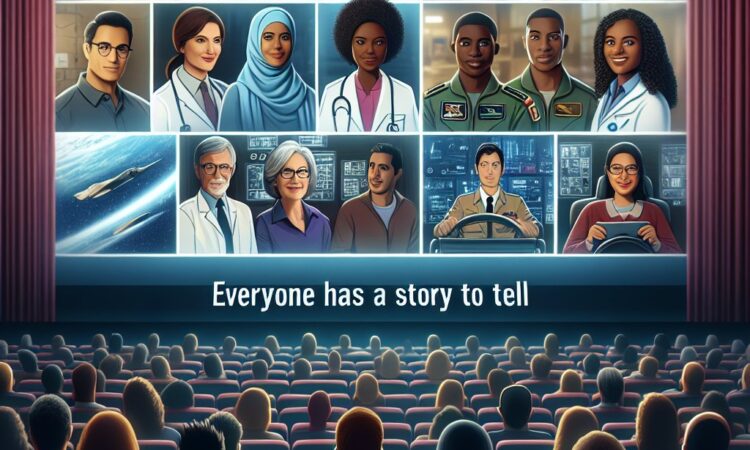The Increasing Importance of Diversity and Inclusion in Cinema
In today’s world, the film industry is facing growing calls for diversity and inclusion, both in front of and behind the camera. This movement aims to represent the diverse voices and experiences of audiences more accurately and authentically. All around us, cinema plays a significant role in shaping our understanding of the world, influencing our opinions, and reflecting society’s current state. For far too long, however, the narratives depicted on screen have been limited in their exploration of diverse cultures, identities, and perspectives.
The demand for diversity and inclusion in cinema is not about ticking boxes or meeting quotas; it is rooted in the fundamental need to provide equal opportunities for all individuals, regardless of their race, ethnicity, gender, sexual orientation, or disability. It is about acknowledging and celebrating the richness of human experiences, breaking stereotypes, and challenging prevailing norms that perpetuate exclusion and discrimination. By incorporating diverse perspectives into storytelling, cinema has the potential to foster empathy, understanding, and unity among audiences.
Representing diversity on screen goes beyond casting diverse actors and actresses; it encompasses the stories being told, the characters portrayed, and the talents behind the scenes. It means providing platforms for underrepresented filmmakers, screenwriters, producers, and other industry professionals to showcase their unique visions and contribute to the art of storytelling. By diversifying the voices and talents within the film industry, we can break free from the homogeneity that has historically defined cinema and open doors to fresh narratives that resonate with a broader range of audiences.
Furthermore, diverse and inclusive cinema not only benefits the audiences but also the industry itself. In recent years, films with diverse casts and storylines have proven to be immensely successful commercially, attracting wider and more diverse audiences. This highlights the economic viability of embracing diversity in filmmaking and encourages studios and production companies to invest in projects that reflect the true diversity of our world. By embracing diversity and inclusion, the film industry can tap into a vast pool of untapped talent and creativity, leading to more exciting and innovative storytelling.
In conclusion, the increasing importance of diversity and inclusion in cinema cannot be overstated. It is a necessary and long-overdue movement that seeks to redefine narratives, challenge stereotypes, and create an inclusive space for all voices to be heard. By embracing diversity, the film industry can better represent the world we live in and, in turn, inspire positive change in society. As audiences, let us voice our support for films that authentically portray diverse experiences and demand equal representation for all.

